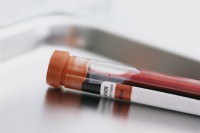
Over the past few decades adult obesity in the U.S. has doubled and childhood obesity has tripled. Cancer researchers warn that unless Americans can trim down and learn to manage their weight more effectively, the obesity epidemic is likely to cause a spike in cancer diagnoses and cancer deaths.
While researchers are still working to understand how obesity promotes cancer development, it appears that fat tissue creates an ideal environment for the development and growth of numerous types of cancer. Obesity has been linked to an increased risk of developing breast cancer, colorectal cancer, kidney cancer, pancreatic cancer, esophageal cancer, thyroid cancer, gallbladder cancer, endometrial cancer and liver cancer.
An excess of fat cells can result in metabolic dysfunction, compromising the body’s immune system and its ability to fight cancer. Researchers have discovered that fat tissue stimulates the production of estrogen and other cancer-related hormones; can disrupt insulin production which can lead to chronic inflammation; and interferes with cytokines, disrupting vital cell communication and opening another door to cancer-related inflammation.
Eating a healthy diet and exercising regularly to maintain a healthy weight promote a healthy immune system and can help prevent cancer. More and more oncologists recommend diet and exercise goals for cancer survivors to reduce the risk of cancer’s return. Issels cancer treatment specialists recommend to their patients, according to their individual needs, an organic vegetarian diet that is high in immune-boosting vitamins, minerals, enzymes and micronutrients.
Next time: The benefits of exercise





